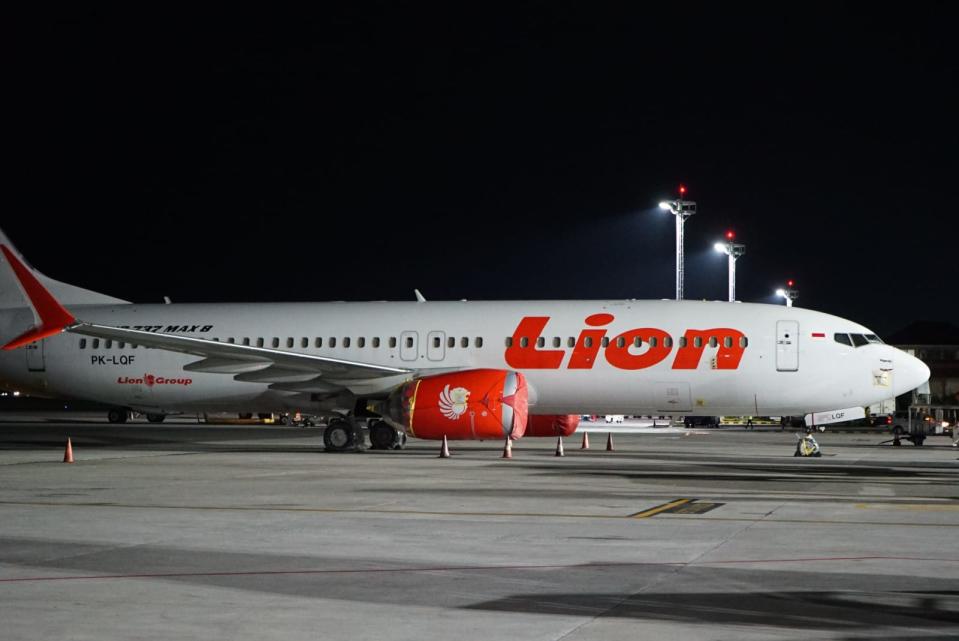Crash investigators fault 737 Max's design and approval process
Indonesian officials cited Boeing's MCAS system and a lack of pilot training for it.
The Boeing 737 Max had design flaws that were made worse by inadequate pilot training and a faulty approval process that led to the Lion Air accident, Indonesian investigators concluded. Their report confirms multiple stories about Boeing's faulty MCAS control system, why pilots weren't properly trained on it and how it got approved in the first place, according to the Washington Post. The October 29, 2018 accident killed eight crew and 181 passengers.
"We are addressing the [regulators'] safety recommendations, and taking actions to enhance the safety of the 737 Max to prevent the flight control conditions that occurred in this accident from ever happening again," said Boeing President & CEO Dennis Muilenburg in a statement, in response to the report. "Safety is an enduring value for everyone at Boeing and the safety of the flying public, our customers, and the crews aboard our airplanes is always our top priority."
Officials from Indonesia's transportation regulator said nine separate factors may have contributed to the crash. "If one of them was not occurring on that day, the accident may not have happened," said investigator Nurcahyo Utomo from Indonesia's National Transportation Safety Committee.
That started with the "maneuvering characteristics augmentation system," or MCAS, the team said. The biggest problem was that it relied on a single angle of attack (AoA) sensor, which made the entire system vulnerable to one component. In the Lion Air crash, it gave a false reading which wrongly triggered the MCAS system to push the nose down. That was exacerbated by the fact that the system didn't reset, so it kept pushing the nose down.
We are addressing the KNKT's safety recommendations, and taking actions to enhance the safety of the 737 MAX to prevent the flight control conditions that occurred in this accident from ever happening again. Safety is an enduring value for everyone at Boeing and the safety of the flying public, our customers, and the crews aboard our airplanes is always our top priority. We value our long-standing partnership with Lion Air and we look forward to continuing to work together in the future.
The pilots weren't properly trained on the system, so they didn't know how to override it. In addition, the problem had previously occurred in the same jet, so it should have been grounded. However, officials concluded that there was ineffective coordination between flight crews.
Investigators called for better oversight by the Federal Aviation Administration (FAA) and suggested how both Boeing and Lion Air could improve their systems. Rather than finding fault, the team said it wanted to improve safety, suggesting that the parties take "immediate corrective actions to ensure that an accident like this one never happens again."
For its part, Boeing detailed how it's trying to make the 737 Max safer. The MCAS system will compare information from two AoA sensors, not just one, and only activate if they both agree. Also, MCAS will only deploy once, rather than multiple times, and not with such force that pilots can't override it with the control column.
The FAA also gave a statement on the accident report. "We will carefully consider these and all other recommendations as we continue our review of the proposed changes to the Boeing 737 MAX. The FAA is committed to ensuring that the lessons learned from the losses of Lion Air Flight 610 and Ethiopian Airlines Flight 302 will result in an even greater level of safety globally. The FAA continues to review Boeing's proposed changes to the 737 MAX. As we have previously promised, the aircraft will return to service only after the FAA determines it is safe."
Boeing is under pressure from Congress, the Justice Department and families of the victims, particularly in light of recent findings that it may have misled regulators about the performance of the MCAS anti-stall technology. As it stands now, there's still no news yet on when the 737 Max may fly again.


